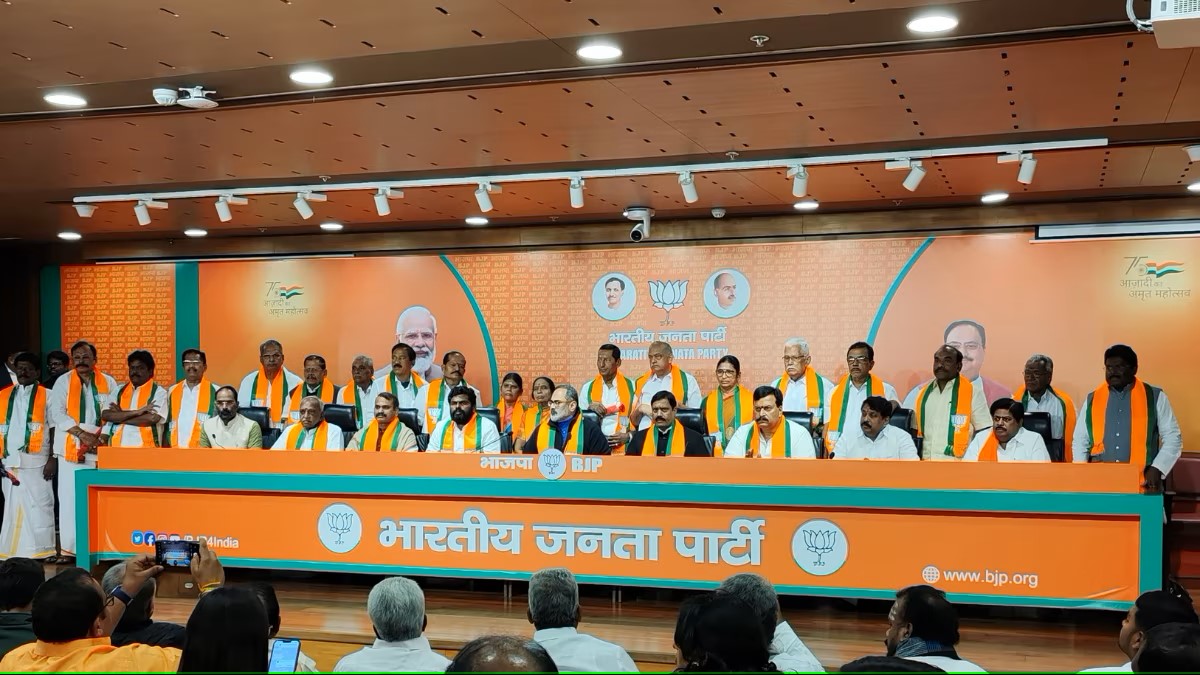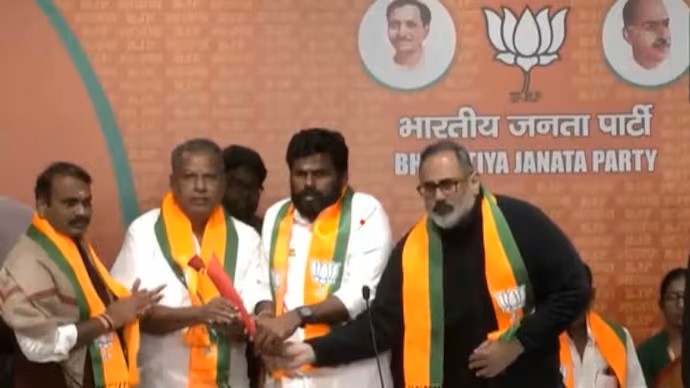The recent influx of prominent figures into the Bharatiya Janata Party (BJP) in Tamil Nadu has sent shockwaves through the state’s political landscape. The addition of 15 former MLAs and an ex-MP, including heavyweights like Gomati Srinivasan and R. Chinna swamy, signifies a strategic move by the saffron party to carve out a larger space in the traditionally Dravidian-dominated state. This development, unfolding just months before the crucial 2024 Lok Sabha elections, carries significant implications for both the BJP and its established rivals.
 While the BJP has historically held limited sway in Tamil Nadu, these defections indicate a concerted effort to build a broader support base beyond its core Hindutva ideology. By bringing onboard experienced politicians with established local connections, the party aims to expand its reach beyond urban pockets and penetrate deeper into the state’s diverse social fabric. This strategic shift towards regional issues and alliances could potentially challenge the dominance of entrenched Dravidian parties like the DMK and AIADMK.
While the BJP has historically held limited sway in Tamil Nadu, these defections indicate a concerted effort to build a broader support base beyond its core Hindutva ideology. By bringing onboard experienced politicians with established local connections, the party aims to expand its reach beyond urban pockets and penetrate deeper into the state’s diverse social fabric. This strategic shift towards regional issues and alliances could potentially challenge the dominance of entrenched Dravidian parties like the DMK and AIADMK.
Union Minister Rajeev Chandrasekhar’s remarks linking the defections to Prime Minister Narendra Modi’s national popularity highlight the BJP’s attempt to leverage its pan-India image in Tamil Nadu. The projection of a strong national leadership and projected gains in other states could resonate with some voters seeking stability and continuity. However, successfully translating this national narrative into relatable local concerns will be crucial for the BJP’s electoral success in the state.
While the BJP celebrates its gains, the road ahead won’t be a cakewalk. Integrating these new members seamlessly and addressing potential internal conflicts will be essential to avoid creating a fractured image. Additionally, navigating the complex dynamics of caste and regional sentiments, historically crucial factors in Tamil Nadu politics, will require a nuanced approach that goes beyond mere symbolism.
The BJP’s recent move has undoubtedly injected uncertainty into the state’s political landscape. The established Dravidian parties now face a more formidable challenger, forcing them to re-evaluate their strategies and connect with voters on a deeper level. While the BJP enjoys the initial momentum, sustained efforts on the ground, a clear vision for Tamil Nadu’s development, and addressing local concerns effectively will determine its ability to translate these defections into concrete electoral gains in 2024.




